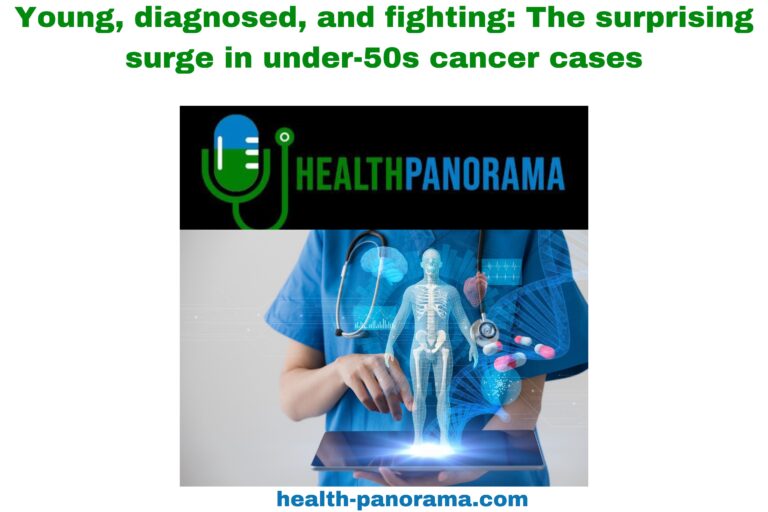There is a startling trend of cancer cases among individuals under 50 years globally.
Cancer diagnoses in younger adults are creating new challenges for the medical community because it was hitherto considered more prevalent in older populations.
The increase in cases demands a closer look at the contributing factors and the proactive research efforts aimed at combating this trend.
According to a comprehensive global study published in The BMJ Oncology (2023), cancer cases among individuals aged 15 to 49 rose by nearly 80% between 1990 and 2020.
The most significant surges were noted in cancers of the breast, colon, and thyroid.
The World Health Organisation (WHO) reports that cancer is now the leading cause of death in this age group, accounting for over 15% of premature deaths.
Several contributing factors are believed to play a role in the rising incidence of cancer among younger adults:
Lifestyle and Dietary Shifts: The modern diet, rich in processed foods and red meats and low in fiber, has been linked to an increased risk of colorectal and other gastrointestinal cancers. High sugar intake and sedentary lifestyles are also contributing factors that may elevate cancer risk.
Obesity Epidemic: The Lancet Oncology (2023) found that obesity, which has nearly tripled worldwide since the 1970s, is closely associated with higher cancer risks. Obesity not only disrupts hormonal balance but also contributes to chronic inflammation, creating an environment conducive to cancer cell growth.
Environmental and Chemical Exposures: Increased exposure to pollutants, microplastics, and endocrine-disrupting chemicals is thought to influence cancer rates. Young adults are now exposed to more environmental toxins than previous generations, which may contribute to an earlier onset of cancer.
Genetics and Family History: While lifestyle and environment are critical, genetics still play an essential role. Many under-50 cancer patients have a family history that predisposes them to certain types of cancer. Innovations in genomic research have allowed scientists to identify genetic markers that signal higher risk levels, paving the way for earlier interventions.
Experts are actively exploring solutions to counteract this worrying trend.
Large-scale epidemiological studies are being conducted to better understand the specific exposures that contribute to cancer risk in younger adults.
Moreover, advancements in liquid biopsy technology are enhancing early cancer detection by identifying cancerous cells and DNA fragments in the bloodstream at an early stage.
Innovative treatments such as targeted therapies and personalised medicine are also reshaping cancer care.
These approaches tailor treatment plans based on an individual’s genetic profile, increasing treatment efficacy and reducing side effects.
To combat the rise in cancer cases, public health agencies are raising the awareness on lifestyle modifications, such as promoting healthier diets, regular exercise, and tobacco avoidance. Policies aimed at reducing environmental pollutants and promoting safer food practices are also in discussion.
While the increasing cancer rates among under 50 present an alarming trend, research efforts and public awareness initiatives are fostering hope.
An Oncologist at the Nigeria Sovereign Investment Authority and Lagos University Teaching Hospital Cancer Centre, Dr. Francis Durosinmi-Etti, in a recent interview with Business Day lamented the cost of treating cancers.
He said, “One single dose of injection for prostate cancer costs $20,000 – $25,000. Radiation therapy for breast cancer costs ranges from 1.5 to 2 million Naira.”
These insights underscore the urgent need for improved healthcare infrastructure, increased specialist training, and financial support systems to address the rising cancer cases among younger individuals in Nigeria.


